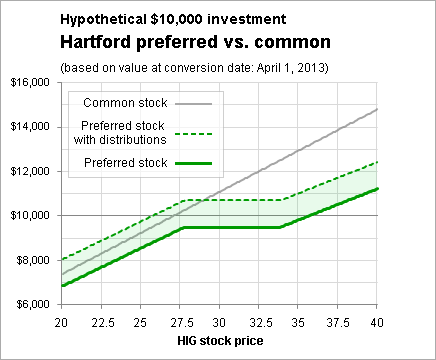Preferred Stock vs Common Stock
Post on: 16 Март, 2015 No Comment

Who Needs Stock?
There are four types of Delaware business entities: general corporations, non-stock corporations, LLCs, and S corporations. Here’s a quick overview of their stock requirements:
- According to Delaware law, every corporation, unless designated a non-stock corporation, is a for-profit general corporation and as such must have at least one class of common stock to evidence ownership.
- Non-stock corporations (usually, but not limited to, not-for-profit organizations) do not have owners represented by shares of stock and, accordingly, surrender the ability to own stock.
- S corporations, which are small corporations where all net income and loss is divided and reported on the individual tax returns of shareholders rather than one federal tax return, can only have one class of stock.
- Since Delaware LLCs are member-owned, they do not require any type of stock to evidence ownership. It’s a subtle difference, but it is important to point out that LLCs are not corporations.
What Is No-Par Stock?
No-par stock is stock that is essentially issued without a face value. It can be issued to shareholders without the exchange of funds, goods, or services and having no par value will not restrict you in selling your shares to investors at the price determined by the board, and accepted by the investor (just like shares that do have a par value).
It should be noted that some U.S. states do not allow corporations to issue no-par stock. Fortunately, Delaware is not one of those states and the Delaware Division of Corporations will allow Delaware general corporations to hold up to to 1,500 shares of no-par stock fee-free.
When Do I Issue Stock?
When and how you choose to issue stock to your investors is entirely up to you. Obviously, you will want to issue common stock to yourself early in the organization process to help prove your ownership and interest in the company. If you have other initial investors, they will also expect to have common stock issued to them early in the formation of the corporation. From there, as you attract more investors, you can continue to issue common stock as your circumstances require. When you are at a place where you find yourself issuing common stock to investors more liberally, it might be a good time to consider issuing preferred stock to yourself and your senior investors in order to preserve exclusive rights and special powers.
Where Do I Get Stock Certificates and Other Supplies for My Company?
In the Standard and Premium Harvard Business Service, Inc. incorporation packages you will receive a Company Kit that includes 20 stock certificates for your particular company. If you need more stock certificates please call us at 1-800-345-CORP, or email us .
How Much Stock Do I Need?
Since the annual Delaware franchise tax fees for stock corporations are based on number of stock shares and their par value, it is best to keep both of these as low as you can.
If your stock corporation has 5,000 authorized shares or less, you are considered a minimum stock corporation and are only required to pay a minimum annual franchise tax of $175, in addition to an annual-report filing fee of $50.
If your stock corporation has a total of 5,001 authorized shares or more you are required to file an annual report (a $50 fee), and you must also pay an annual franchise tax on the total number of authorized shares your company has. (Learn more about Delaware franchise tax fees .)
While you can have up to 5,000 authorized shares and still be considered a minimum stock corporation, many attorneys recommend that you begin with 1,500 shares of no-par stock because placing a small par value on your stock can save you from a significant tax bite. There are also additional filing fees associated with filing more than 1,500 no-par shares.
If you choose to issue par-value stock, in order to qualify as a minimum stock corporation your total equity valuation (the number of shares multiplied by par value) must not exceed $75,000 to stay within the minimum initial filing fee.
Accordingly, all of the share configurations below are allowed within the minimum initial tax:
15,000 shares @ $5.00 each (par value) = $75,000
150,000 shares @ $0.50 each (par value) = $75,000
1,500,000 shares @ $0.05 each (par value) = $75,000
15,000,000 shares @ $0.005 each (par value) = $75,000
Make sure to include all classes of stock, including common and preferred stock, when figuring the above formula.
Ready to form a Delaware corporation? Simply click the button below!














